In 2017, a Dairy Queen in Kewaskum, Wisconsin grabbed attention online with a message posted in its front window, causing quite a stir across the internet.
Some words or expressions, like ”Merry Christmas,” can stir up controversy, even when they seem harmless to some.
In a world filled with different beliefs and traditions, what feels like a simple greeting to one person might come across as exclusionary to another.
It’s that clash of perspectives that can turn a seemingly innocent phrase into a hot topic. Take, for example, a Dairy Queen in Wisconsin that made headlines with a bold sign on its window — sparking a heated debate online.
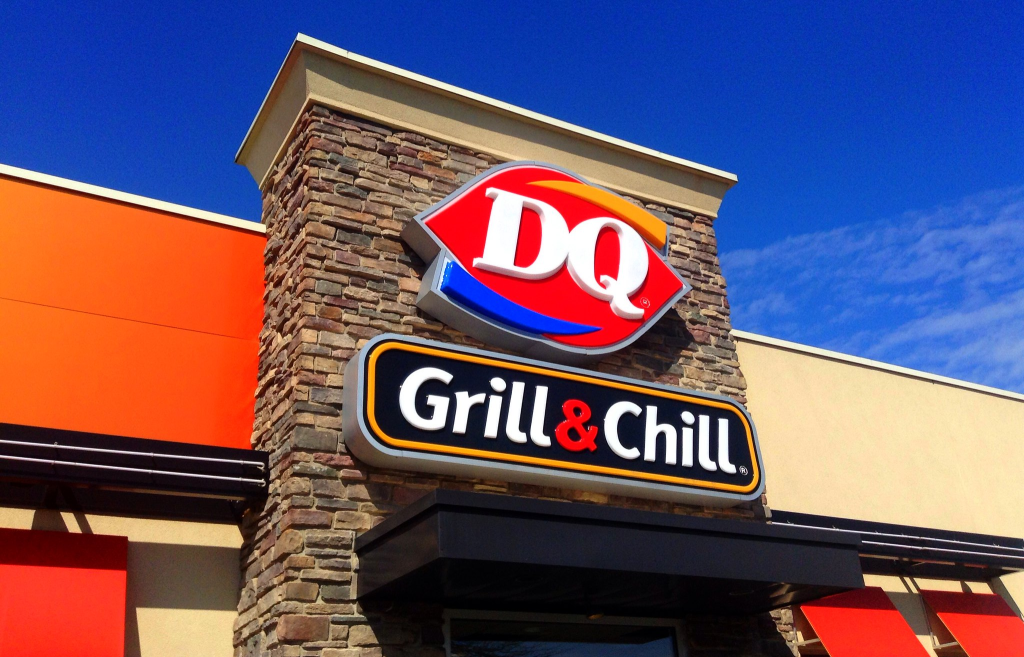
For years, a Dairy Queen in Kewaskum, Wisconsin, has proudly displayed a ”politically incorrect” sign on its window. While locals have long been familiar with it, back in 2017, an out-of-town customer took notice and set the internet on fire.
The store’s owner, Kevin Scheunemann, is the one who put up the sign, and he stands by its message.
“I felt the sign was appropriate to hang in terms of being transparent about the views of the owner and staff supporting God and country,” Scheunemann explained to WeAreGreenBay.com.
The sign in Kewaskum
So, what did the sign actually say?
It proudly declared the restaurant’s stance on “political incorrectness,” emphasizing holiday greetings like “Merry Christmas,” “Happy Easter,” and “God Bless America.” It also included the phrase “In God we trust” and offered free sundaes to veterans on Veteran’s Day.
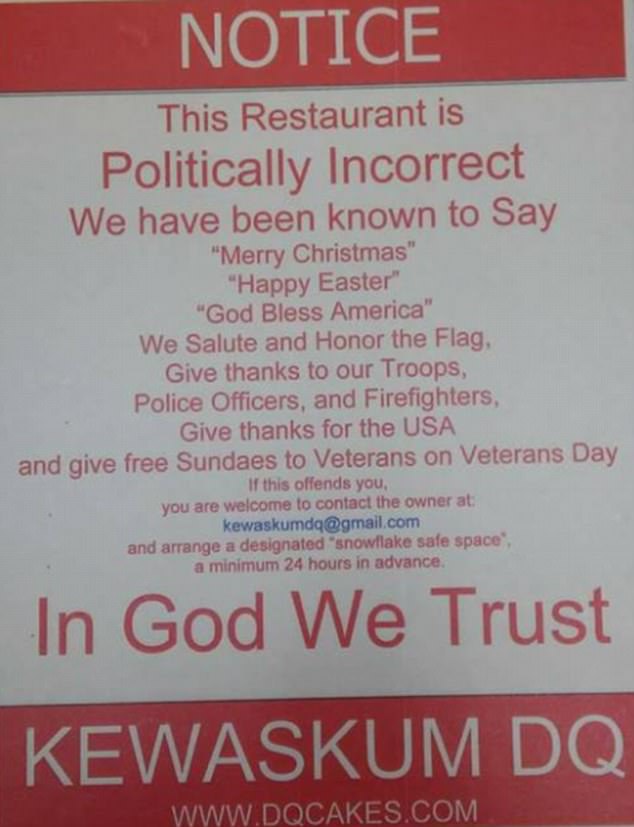
According to the owner, he decided to put up the sign back in 2012, after a customer was upset by Christian music playing inside the restaurant.
“I just felt it was more appropriate to disclose these kinds of expressions,” Scheunemann continued. “It just seems that those kinds of values and principles are becoming controversial in society.”
Despite the occasional controversy, Scheunemann stands firm, willing to have a conversation with anyone who disagrees, but also proud of his values.
”Pretty tasteless”
But as mentioned, not everyone agreed with Scheunemann’s perspective. One customer from Oregon posted the sign on Dairy Queen’s national Facebook page in 2017, complaining about its exclusive nature.
This sparked a flood of negative comments, with people like Steve Thomas from Milwaukee saying, “I feel this is a pretty tasteless thing to have posted at one of your franchises. The part I disagree with is his use of the term ‘snowflake’… he’s alienating half the population by using that term.”
Thomas continued, “The other thing I don’t like is him belittling ‘safe spaces.’ Young adults need a safe place to talk when they’re struggling but won’t go because of the criticism they might receive. That’s why I disagree with this sign.”
Despite the backlash, many showed their support for Scheunemann, with some people even traveling long distances to snap a picture with the owner.
I just had to post this. Naturally, it was really busy tonight. This customer comes up to counter and says he has…Posted by Kevin Scheunemann on Saturday, June 30, 2018
In response to the controversy, Dairy Queen released a statement:
“American Dairy Queen Corporation does not encourage our independently owned and operated franchisees to post non-business related messages. This sign expresses the views of this independent owner only and does not speak for ADQ Corporation or other franchise owners. We expect our franchisees and employees to treat every customer with dignity and respect.”
New controversy
Then in 2020, the same Dairy Queen found itself at the center of another debate when a Donald Trump campaign sign, placed next to the restaurant’s parking lot, was nearly stolen.
CCTV footage showed two people trying to take the large Trump sign, but they couldn’t fit it into their car. Scheunemann, who posted about the incident on Facebook, even offered a $500 Dairy Queen gift card for information leading to the suspects’ arrest.
Love it or hate it, Dairy Queen’s politically charged sign has certainly sparked conversation over the years.
Whether you’re all for Scheunemann’s unapologetic stance or feel it crosses a line, it’s clear that his message has struck a chord with people from all walks of life. From heated debates on social media to those who travel miles just to snap a photo with the sign, it’s a reminder of how a single statement can ignite a much larger conversation.
So, what do you think? Does Scheunemann’s sign represent standing strong in your beliefs, or is it a step too far in today’s divided world?
Our Landlord Started Coming Daily to Check on the Apartment – When He Made a Scene about Spilt Coffee, We Had Enough

My bestie Jenna and I found the perfect vintage apartment with a seemingly sweet landlord, Mr. Whitaker. But things took a bizarre turn when his daily “inspections” and unsolicited advice crossed the line into creepy territory.
Hello! My name is Andrea, and anyone who has had to deal with a crazy landlord will relate to my story. So, here we go.
A few months ago, my bestie, Jenna, and I found this adorable two-bedroom apartment. It had that vintage charm, as well as brick walls, slightly creaky hardwood floors, and just this amazing cottage-core potential in the middle of the city.

A beautiful apartment living room | Source: Midjourney
The landlord, Mr. Whitaker, seemed like a sweet old guy, too, with gray hair and a kind smile. He looked a little like the grandfather from “Up,” except not grumpy.
I thought it was perfect, so we took it right away and signed the lease. For the first few months, it was bliss.
We decorated with quirky thrift store finds and turned every windowsill into a mini jungle. We even posted our journey on Instagram and did a lot of DIY craft stuff for more decorations. But then… things got weird.

Two people making crafts | Source: Pexels
It started innocently enough, so we didn’t have time to control things before they exploded. Let me explain a little better.
Mr. Whitaker showed up one day with a toolbox in hand. “Just checking the plumbing!” he said with a smile. That was amazing, right?
It was good to have a proactive landlord, one we didn’t have to call every day for a simple fix. But then he was back the next week. And the week after that.
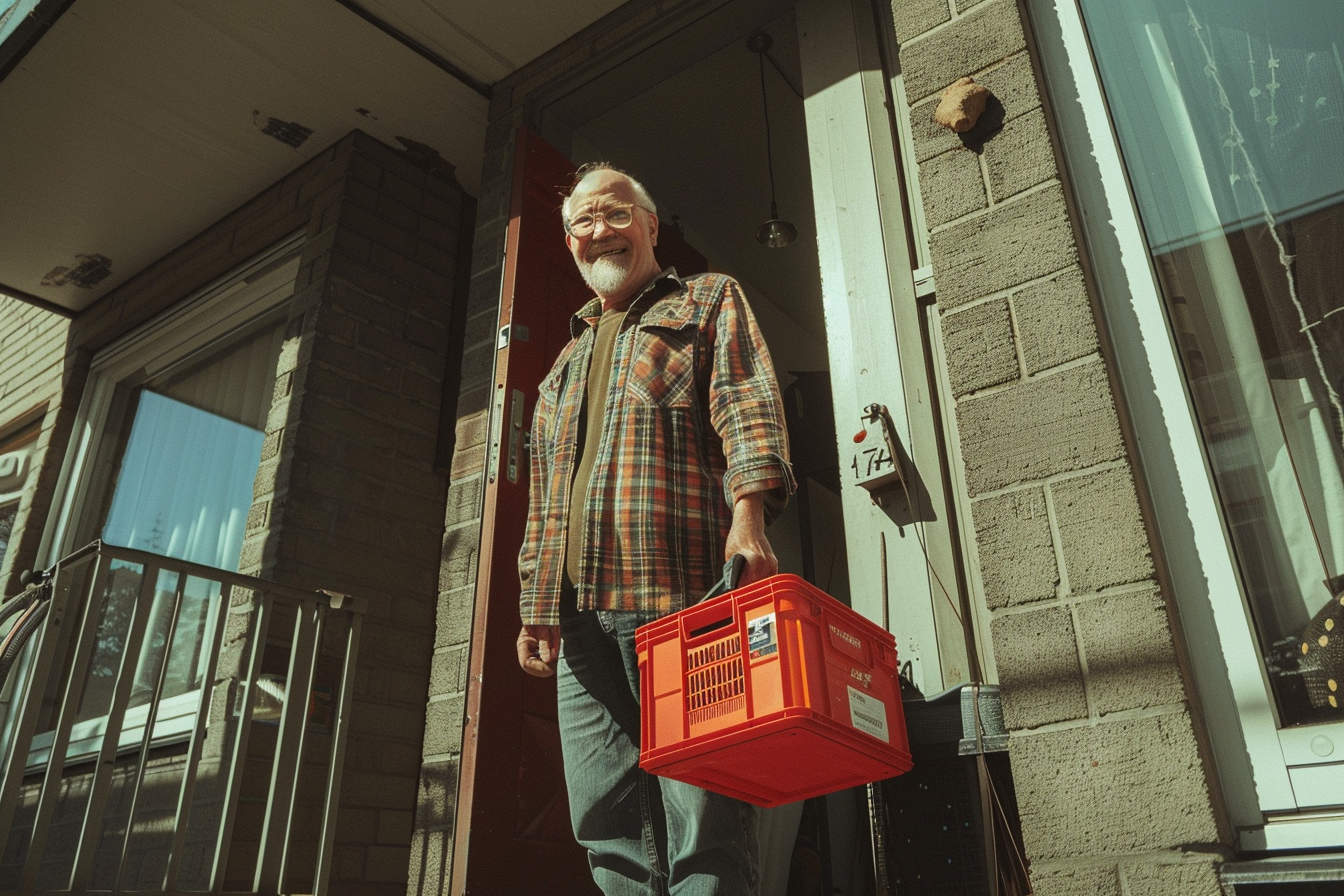
An old man carrying a toolbox | Source: Midjourney
Soon, it was every. Single. Day. And his excuses got more and more ridiculous.
“Gotta inspect that wiring!”
“Those smoke detectors won’t check themselves!”
“Need to measure the air quality!”
I kid you not, he actually said this, and I had to Google if that was a real thing. Apparently, it was, so Jenna and I didn’t know what to think.

A woman with a puzzled expression | Source: Pexels
At first, we tried to be cool about it. We were like, “Maybe he’s just thorough? Or bored? Or really, REALLY into property maintenance?”
But nope, this issue got so much worse.
He came by another day without any kind of excuse and just looked around. Suddenly, he started critiquing our cleaning.
“You know, a little vinegar would get that stain out of the counter right out,” he said, pointing at a spot we didn’t even know existed.

Kitchen counters | Source: Unsplash
He also made these passive-aggressive comments about our lifestyle. “Back in my day, young ladies dressed much better with pretty sundresses, not sad, tight pants,” he muttered to me.
I was literally in my work clothes.
And sometimes he just… sat there. In our living room. Watching us like we were some kind of reality TV show.
He wasn’t exactly creepy yet, but Jenna and I were uncomfortable. If I wanted an old grumpy man to complain about my life and choices, I would’ve stayed at home with my parents.

A woman worried and uncomfortable | Source: Pexels
We had to start tiptoeing around our own apartment. It felt like he was here even in the rare times he didn’t show up.
Jenna and I even began to wonder if he was letting himself in when we weren’t around. Now, that was a creepy thought. But we had no proof.
One time, he showed up while Jenna was in the shower, and insisted on checking the bathroom sink right then and there.
I had to play bodyguard outside the bathroom door. Still, Jenna finished and came out quickly, and Mr. Whitaker got to work like this was perfectly normal.

A woman drying herself | Source: Pexels
Mortifying didn’t even begin to cover how we were feeling, and I was about to reach my breaking point.
Days later, he decided our furniture arrangement was “damaging the floor,” and tried to move our couch himself, nearly throwing out his back.
We had to help him sit down and get him some water. Eventually, we started keeping a log of his visits.

An old man on a couch drinking water | Source: Midjourney
It was our own bizarre diary:
Monday: Checked lightbulbs. Commented on dust.
Tuesday: Inspected windows. Criticized our choice of curtains.
Wednesday: ‘Fixed’ a door that wasn’t broken. Left it squeaking.
You get the idea. We were going nuts, but we were also kind of scared to confront him. What if he kicked us out?

A woman confused and worried | Source: Pexels
The rental market was brutal, and we loved this place (when he wasn’t in it).
Then came The Day.
It was a sunny Saturday morning. Jenna and I were having our weekend coffee, planning a day of brunch and thrift shopping.
I reached for the sugar and my elbow knocked over my cup. Coffee spilled over our cute little IKEA table and onto the floor.
That was no big deal, but before we could even grab a paper towel, we heard keys jingling.
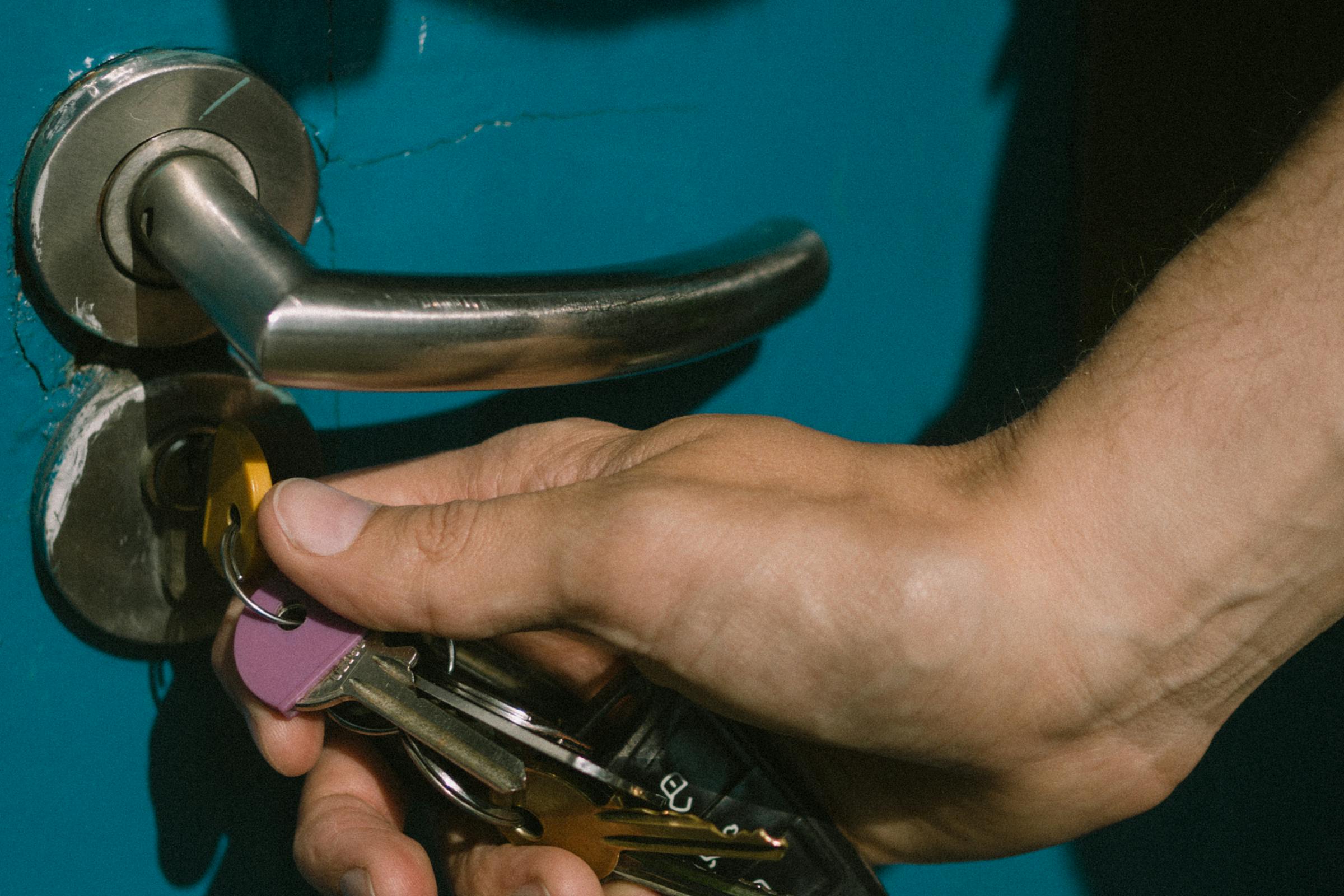
Keys on a lock | Source: Pexels
The door flew open, and there was Mr. Whitaker. His face changed so quickly at seeing the mess and got so red, I swear he could’ve stopped traffic.
“WHAT’S GOING ON HERE?!” he demanded, and his eyes almost bulged like a cartoon. “YOU’RE RUINING MY PROPERTY!”
I tried to calm him down. “I just spilled my coffee, Mr. Whitaker. We’ll clean it up, no worries!”
“JUST COFFEE?!” he screamed. I’m pretty sure I saw steam coming out of his ears. “DO YOU KNOW HOW MUCH DAMAGE THAT CAN CAUSE?! IT’LL SEEP INTO THE FLOORBOARDS!”

An old man yelling | Source: Midjourney
Jenna and I shared a look that said, “This is it. We’ve reached our limit. No more Ms. Nice Tenant.”
As soon as Mr. Whitaker stormed out (but not before giving us a 20-minute lecture on the “proper way” to drink coffee), we started thinking.
What could we do to stop this?
We spent the rest of the day researching tenant rights, reading our lease agreement with a fine-tooth comb, and coming up with a battle plan.

Reading a document | Source: Pexels
And we decided to use a secret weapon: a security system. (Yes, it’s legal in most cases for tenants to install their own security cameras.)
We had someone install it as soon as the system was delivered. It came with motion sensors, cameras, and a loud alarm. It also connected to the internet.
Jenna and I installed the app, and we were ready. It was definitely out of place, considering our decor and general style, but Mr. Whitaker had forced our hand.

A phone with several apps | Source: Pexels
So, the next day, we activated everything and left for our respective jobs.
Lo and behold, around 11 a.m., my phone started buzzing like crazy. The alarm had been triggered. I checked the cameras, and as expected, it was Mr. Whitaker, who had let himself in.
I called Jenna, and together we decided to call the cops, although we only used the non-emergency line. Then, we each left our jobs early.

A woman at work making a call | Source: Pexels
When we got to our apartment, Mr. Whitaker was in a heated argument with two very unimpressed-looking police officers.
“This is MY apartment!” he yelled, his face matching the color of a ripe tomato. “I have every right to be here! I OWN this building!”
The younger cop looked so done, so we approached and introduced ourselves.
“Sir,” he said slowly, “you may own this place, but you have tenants. You can’t just enter whenever you want. That’s not how this works. They have a right to privacy.”
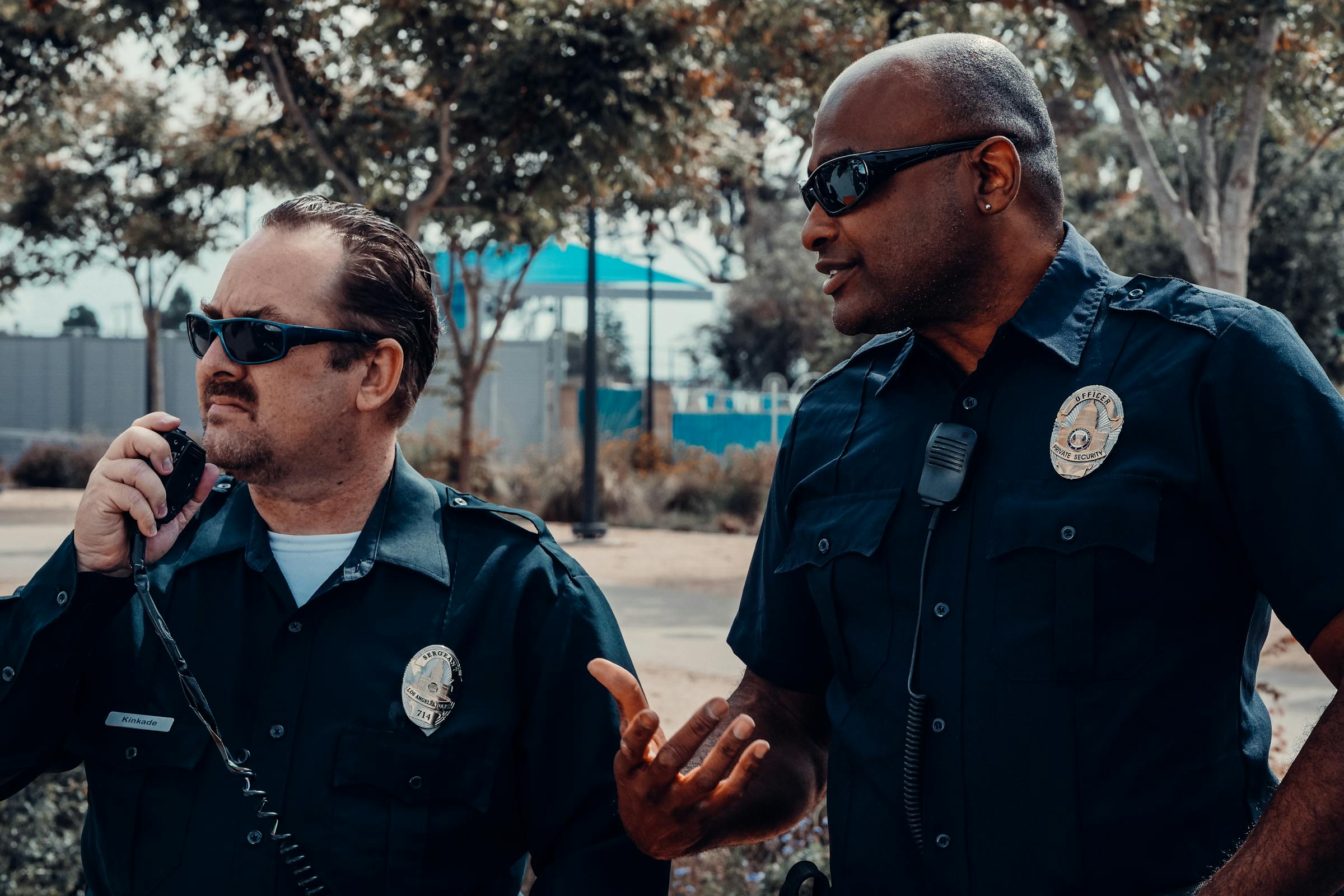
Cops working a case | Source: Pexels
When Mr. Whitaker began sputtering, I pulled out the lease agreement, pointing out the clause about 24-hour notice for non-emergency entry.
The older cop nodded at me as if he already knew that clause would be there. Jenna and I thought this moment was great to point out how Mr. Whitaker often barged in, not taking no for an answer, and made us uncomfortable.
The officer’s frown increased the more we talked.
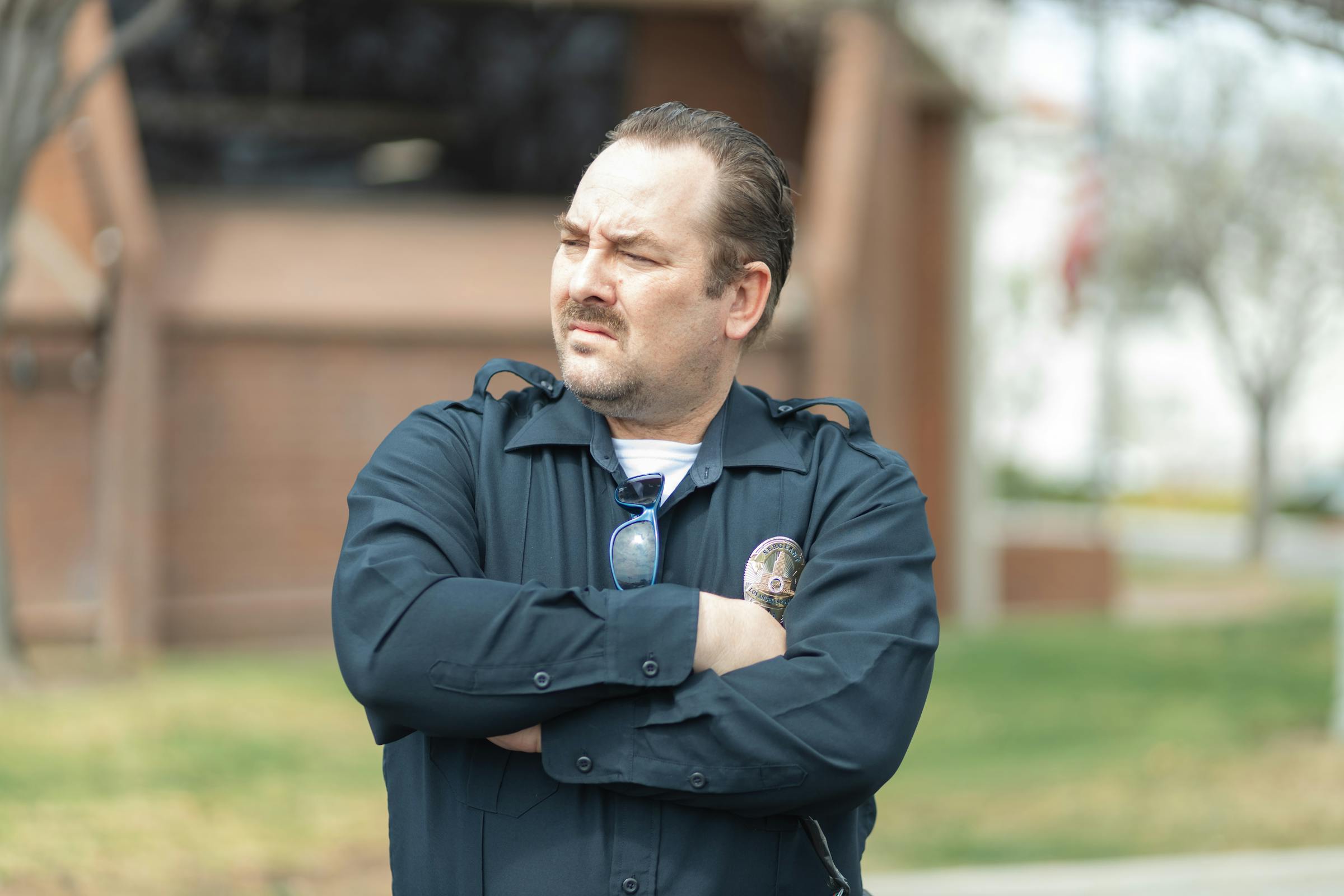
A cop with his arms crossed | Source: Pexels
After a huge sigh, he turned to Mr. Whitaker. “Sir, you’re in violation of the lease terms. These young women have a right to take this matter further.”
I was expecting the old landlord to complain some more, but he deflated like a sad balloon. He probably felt cornered.
He mumbled something about just trying to take care of his property, and I decided to lay it out for him.
“Mr. Whitaker, we appreciate that you care about the building. But there’s caring, and then there’s… whatever this is. We’re responsible tenants. We’ll let you know if anything needs fixing. But you can’t keep barging in like this. It’s not okay.”

A woman with a worried look | Source: Pexels
Mr. Whitaker avoided my eyes.
Jenna added her two cents. “Being a good landlord doesn’t mean invading our privacy. We just want to feel comfortable in our own home. That’s not too much to ask, is it?”
The old grump nodded, but I could tell it was a begrudging agreement, so the cops gave him an official warning. They explained that if it happened again, he could face legal consequences.
Mr. Whitaker nodded again, but it was more serious, although he still looked like a kid who’d been told Santa wasn’t real.

A sad old man | Source: Midjourney
I felt bad for the sad, old man. He might have been lonely, but I don’t regret it because it’s been blissfully quiet since.
He has stuck to the lease terms like they’re glued to his hands. Not only that, but he schedules visits in advance, keeps them brief, and actually waits for us to let him in.
So here’s what I learned: Know your rights as a tenant. Document everything. Don’t be afraid to stand up for yourself. And a good security system is worth its weight in gold!

Two women laughing on a couch | Source: Pexels



Leave a Reply